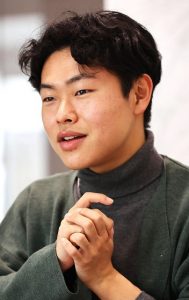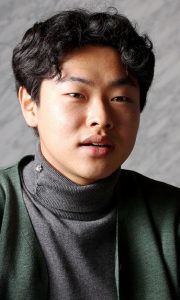Hiroshima Voices: “No Nukes, No War” Keita Takagaki, 20, university student, Tokyo
May 5, 2023
We might ourselves be complicit in war without even realizing it
Keita Takagaki, a university student originally from Hiroshima’s Asaminami Ward, engages in activities aimed at the elimination of nuclear weapons. In June last year, he attended the First Meeting of States Parties to the Treaty on the Prohibition of Nuclear Weapons (TPNW), held in Vienna, Austria, and used that platform to express his views as a youth representative of the International Committee of the Red Cross (ICRC). Together with other young people in Hiroshima, he continues on a path of learning about nuclear victims around the world.
Click here to view the video
What inspired me to take action in this way were my two great-grandfathers from Hiroshima and Nagasaki. Both physicians, they provided first-aid to the wounded after the atomic bombings in each of the cities. At that time, many people including children died without having access to any medical treatment. I want to prevent this from ever happening again. Through such indescribable experiences, my great-grandfathers must have hoped for a society in which everyone could live with dignity. I am taking action based on the idea I have been entrusted with that mission.
In times of war, it is easy to fall into the dichotomy of victims versus perpetrators. Anyone can be a victim of the ravages of war, however, as seen in the deaths of Russian soldiers invading Ukraine. As in the case of the A-bomb survivors of Hiroshima, who have suffered from radiation’s effects as well as societal discrimination and prejudice, the suffering of victims continues. We all must be more sensitive to their suffering, based on the reality that anyone can become a victim.
We might ourselves be complicit in war without even realizing it. A-bomb survivors describe how they uncritically and naively believed what the government had been telling them. We must remind ourselves repeatedly how horrifying such a situation can be. With the flames of war still burning at present, we need to make an effort to learn about the consequences of war.
How can people learn to live together in this world? We need to think about that question in creative and empathetic ways. It is important for all of us to learn about the experiences and feelings of each victim of war and reflect on that knowledge, just as I have come to reflect on war and nuclear weapons and take action based on the experiences of my great-grandfathers. (Interviewed by Kana Kobayashi)









